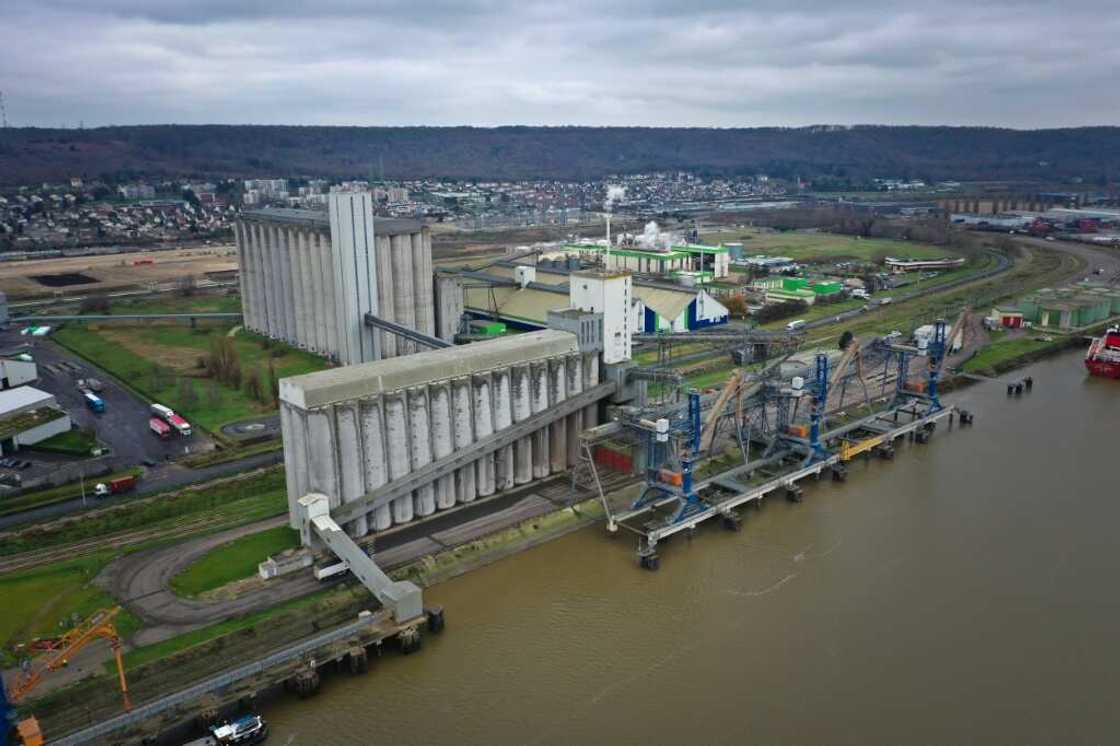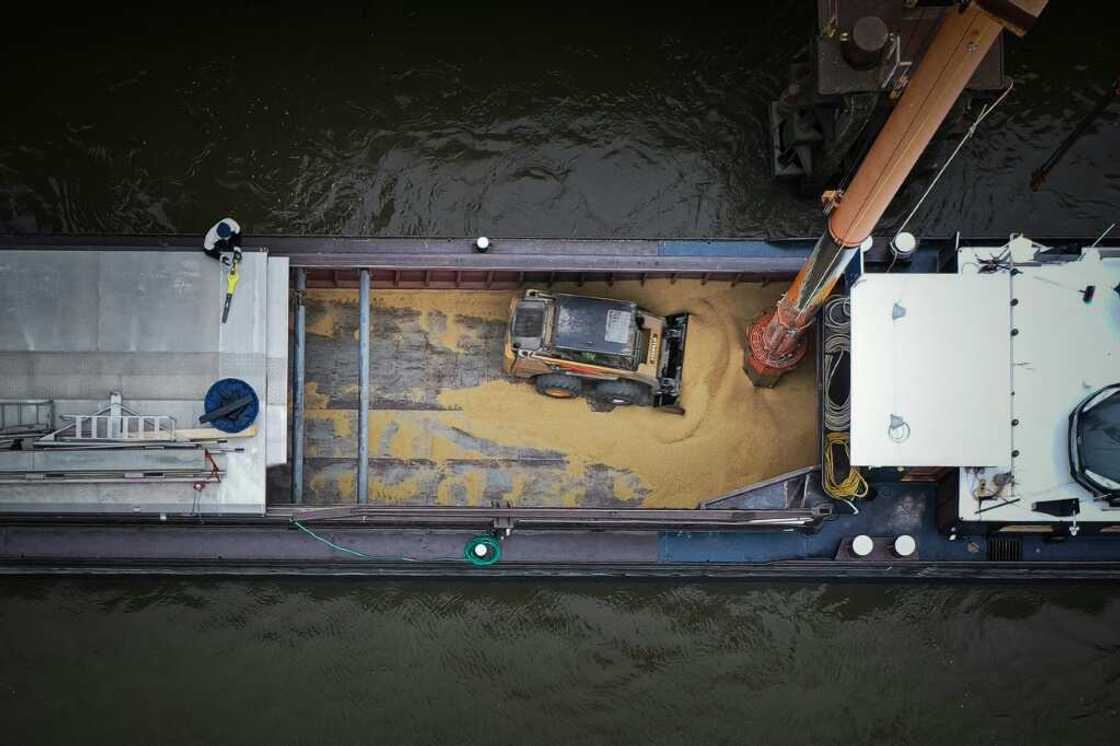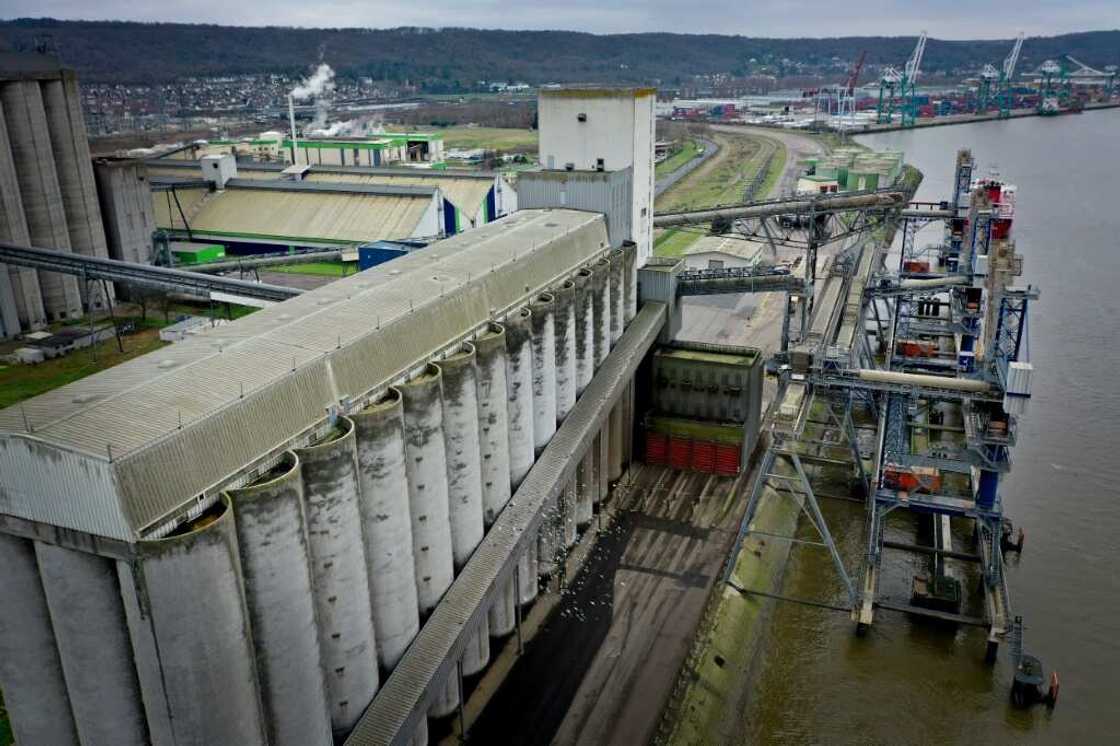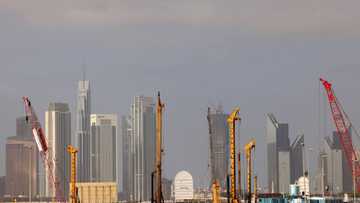Ukraine war turns French port of Rouen into grain powerhouse

Source: AFP
PAY ATTENTION: Click “See First” under the “Following” tab to see Legit.ng News on your Facebook News Feed!
Dozens of miles inland from the English Channel, the Seine River port of Rouen is bustling with shipments of wheat, barley and other grains, a boom fuelled by the Russian chokehold on Ukraine's agriculture exports.
Moscow's invasion has forced countries worldwide to find other sources for essential cereals, propelling France to the world's fourth-largest exporter of wheat -- and making Rouen and its 18,000 workers a key player in the global market.
"We've had unusual destinations such as Pakistan, Iran, India and Saudi Arabia. And countries like Algeria, which had shifted toward the Black Sea, have come back," said Manuel Gaborieau, head of cereals development at Haropa Port, which manages Rouen as well as the ports of Le Havre and Paris.
Rouen, the biggest cereals port in Western Europe, saw record loadings of five million tonnes in the first half of 2022, usually the low point of the year, after Ukraine was attacked last February, he said.

Source: AFP
PAY ATTENTION: Subscribe to Digital Talk newsletter to receive must-know business stories and succeed BIG!
The port has a long history as a trading hub, but grains came to prominence only in the 1960s when producers built the first silos at the site.
It now houses six grain terminals capable of storing 900,000 tonnes, and up to 110,000 tonnes can be loaded onto ships in a day.
"In Europe, only the Romanian port of Constanta has this level of capacity," Gaborieau said.
"Our huge advantage is being right next to the biggest grain producing region of France," said Alain Charvillat, export director at Senalia, the largest cereals operator at the port.
An operator orchestrates the spectacle of cranes, tractors, huge vacuums and whizzing conveyor belts from the screens of Senalia's control room, with dozens of colour-coded circles for each storage unit -- green for rapeseed, blue for soft wheat, and orange or yellow for barley, depending on whether it's for feed or brewing beer.
'Unprecedented'
Senalia alone loaded four million tonnes during the 2021-2022 harvest season, one million more than the previous year, Charvillat said.

Source: AFP
He said French producers had "figured it was easier to move grains by boat than by truck -- a boat holds 30,000 tonnes, the equivalent of 1,000 trucks".
Overall, France exported an "unprecedented" 11 billion euros' worth ($11.7 billion) of grains last year, a 60 percent surge from the year before, said Jean-Francois Loiseau, president of the Intercereales producers' group.
The gain is directly linked to the war in Ukraine, which upended grain markets and saw wheat prices soar to 400 euros a tonne in May 2022, double the price of July 2021, he said.
Rouen is likely to keep reaping profits if the fighting continues to hinder Ukraine's grain exports.
One of the few drawbacks for Rouen is the water depth at the port, which is too shallow for the biggest ships, putting a cap on a single load of 55,000 tonnes.
So larger vessels leave only partially filled and have to stop in La Rochelle to the south, or Dunkirk to the north, to top up their holds.
Source: AFP




